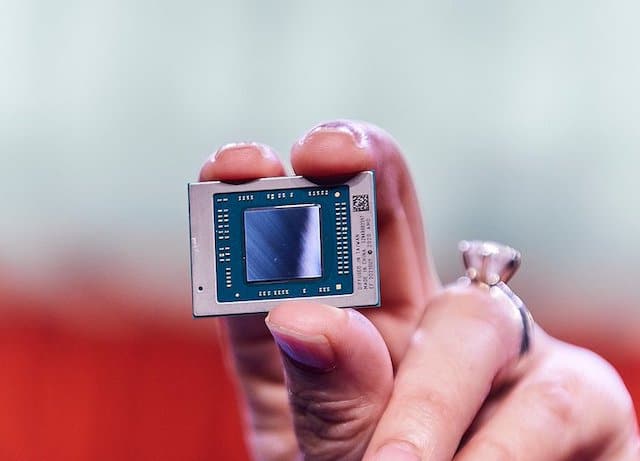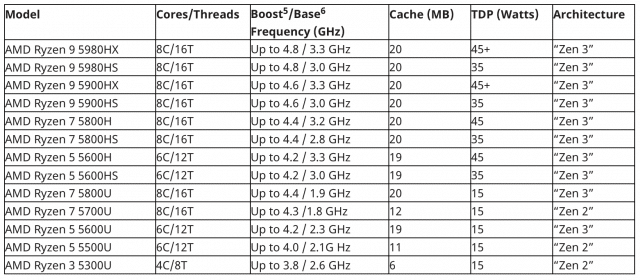AMD begins its 2021 computing onslaught with Ryzen 5000 mobile processors

2020 was a bad year for humanity overall, but it had some good moments -- especially for AMD. In the PC market, that company embarrassed Intel by delivering more powerful processors at very affordable prices. On the mobile front, AMD's Ryzen 4000 mobile processors were very well received by professional reviewers and consumers alike. To make matters worse for Intel, even Apple ditched the company's processors for Mac, instead opting for its own ARM-based chips.
So, yeah, 2020 belonged to AMD. But the company seems disinterested in merely resting on its laurels. You see, today at CES 2021, AMD unveils its Ryzen 5000 mobile processors -- most of which are based on the Zen 3 architecture. Intel is likely very worried about these new chips, fearing a repeat of 2020 in the PC market.
"Building upon the previous generation of leadership mobile processors, the Ryzen 5000 Series includes high-performance H- and ultra-mobile U-Series processors. At the top of the product stack, AMD Ryzen 5000 H-Series Mobile Processors deliver impressive gaming experiences by combining unmatched performance with outstanding battery life, featuring up to 8 cores and 16 threads and built on the new AMD 'Zen 3' architecture," explains AMD.
The company further says, "Topping out the mobile processor offering, the HX Series processors provide gamers and creators with elite-level performance while HS processors bring the power of H-Series in thinner and lighter form factors. The new AMD Ryzen 9 5980HX processor is capable of up to 23 percent increased single-threaded performance and up to 17 percent faster multi-threaded performance over the previous generation2 making it the ideal solution for gaming and creator notebooks."
AMD shares details about these new mobile chips below.

How do we know that Ryzen 5000 mobile processors will be popular with consumers when they show up in computers later this year? Well, PC manufacturers are apparently very excited to use them in new systems. In fact, there will be more than 150 different laptops powered by these new chips, from the likes of Lenovo, ASUS, and HP to name a few.
